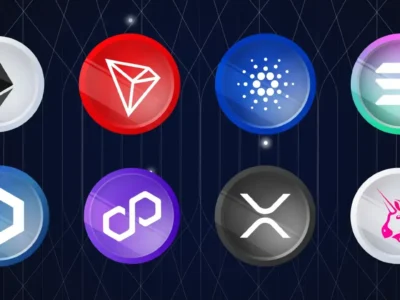Key Points
- Google adds Hindi, Indonesian, Japanese, Korean, and Brazilian Portuguese
- AI Mode powered by Gemini 2.5 now reaches more global users
- Premium features like reservations available in AI Ultra tier
- Google hints AI Mode could soon become default search
Google is taking another big step in reshaping the future of search. After keeping its AI-powered search experience limited to English for over six months, the company has officially expanded Google AI Mode to five new languages: Hindi, Indonesian, Japanese, Korean, and Brazilian Portuguese.
This expansion opens the door for millions of new users to access Google’s AI-driven search tool in their native language. It follows last month’s global rollout of AI Mode in English to 180 new markets, after its earlier launches in the U.S., the U.K., and India.
With this update, Google is not only growing its AI footprint but also making it clear that Google AI Mode is central to the company’s long-term vision for search.
Google AI Mode and its global rollout
When Google AI Mode was first introduced in March 2025, it was made available only to Google One AI Premium subscribers. The tool is powered by Gemini 2.5, Google’s advanced AI model designed with reasoning and multimodal capabilities.
This allows users to ask complex, conversational questions and get richer results compared to traditional keyword searches.
Hema Budaraju, VP of Product Management at Google Search, highlighted the importance of the new rollout in a blog post. “With this expansion, more people can now use AI Mode to ask complex questions in their preferred language, while exploring the web more deeply,” she said.
AI Mode is now available in five new languages around the world 🌐
Starting today, you can use our most powerful Search experience in:
🇮🇳 Hindi
🇮🇩 Indonesian
🇯🇵 Japanese
🇰🇷 Korean
🇧🇷 Brazilian PortugueseLearn more → https://t.co/lJegnNQZ7P pic.twitter.com/k7rNCD80aJ
— Google (@Google) September 8, 2025
The new languages, Hindi, Indonesian, Japanese, Korean, and Brazilian Portuguese, reflect Google’s push into markets with large and fast-growing internet populations.
For users in these regions, Google AI Mode could quickly become the go-to way to search online, especially as the experience becomes more integrated into everyday search.
Currently, users can access AI Mode through a dedicated tab on the search results page or by clicking a button in the search bar. However, Google is signaling that this setup won’t last forever.
Logan Kilpatrick, a group product manager at Google DeepMind, hinted on X that AI Mode could soon become the default way people search, showing just how central it has become in Google’s strategy.
Google’s approach is also shaped by the wider competition in AI, where companies like OpenAI and Anthropic are aggressively pushing their own models.
For example, OpenAI recently announced a new Model Behavior Team to guide responsible AI development, while Anthropic made headlines with its historic $1.5B settlement. These moves show just how high the stakes are in the AI race.
🚨New languages coming to AI Mode in Search: Hindi, Indonesian, Japanese, Korean + Brazilian Portuguese. Try it at https://t.co/Kmsz7Sbzrk pic.twitter.com/zkZOE8sAQk
— Sundar Pichai (@sundarpichai) September 8, 2025
Agentic features and competition in AI search
Google is not stopping at just providing AI-powered answers. Over the past few months, it has begun testing new “agentic” features inside Google AI Mode. These tools go beyond displaying results and allow the AI to take action on behalf of the user.
In August, the company added the ability to book restaurant reservations directly through AI Mode. Google also revealed plans to extend this to local service appointments and event ticket bookings.
These updates are being tested under the “Agentic capabilities in AI Mode” program in Google Labs.
At the moment, agentic features are limited to the U.S. and available only to subscribers of the Google AI Ultra tier. This subscription comes at a hefty price tag of $249.99 per month, positioning it for power users and businesses that want to get the most out of Google AI Mode.
By bringing these tools into search, Google is trying to keep pace with competitors like Perplexity and OpenAI. Notably, OpenAI has been expanding into new areas such as launching its own AI-powered job platform, which shows how quickly AI companies are diversifying beyond traditional chatbots.
The battle for AI dominance has also created turbulence inside companies. Earlier this year, Elon Musk’s AI venture faced headlines after a key executive departure at xAI raised questions about leadership stability.
At the same time, OpenAI has been experimenting with AI agents designed to automate tasks across social platforms, leading to discussions about the risks of AI bots flooding social media.
These developments highlight just how competitive the AI landscape has become. For Google, Google AI Mode is both a defense against rivals and a way to redefine search itself.
As Google AI Mode continues to grow, its role in shaping how billions of people interact with the internet will only become more important.
From supporting multiple languages to handling bookings and local services, Google is transforming search into an active assistant that does more than just provide answers.
The latest rollout marks a turning point: AI-powered search is no longer just an experiment for English-speaking markets, it’s now a global feature that could soon change how the entire world uses Google.







